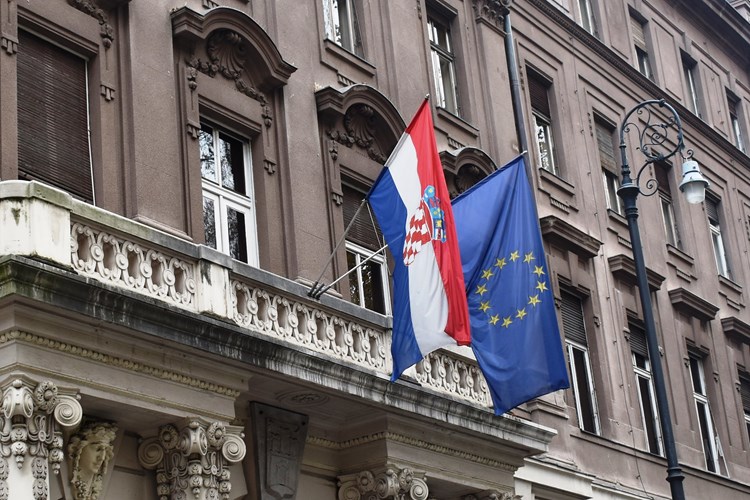


On Thursday, as part of his official visit to Kosovo, Minister of Foreign and European Affairs Gordan Gordan Grlić toured the 34th Croatian KFOR Contingent. The Croatian troops participating in the mission have been praised by international partners. Their deployment confirms that Croatia is a reliable NATO member state and contributes to the strengthening of peace and stability as well as to Croatia’s international reputation. Therefore, Serbia’s hysterical speculations alluding to military activities of a different kind are utterly ludicrous.
These absurd, untrue and incorrect insinuations are an attempt to divert attention from a more series issue: yesterday, the City Council of Subotica declared the Bunjevci dialect an official language. This is first and foremost a political manipulation. The whole Bunjevci issue has a political background and is aimed at breaking up the Croatian national corpus in Serbia – a continuation of Serbia’s long-standing policy.
Let us recall another event – the reaction by the Serbian Ministry of Foreign Affairs to Minister Grlić Radman’s recent visit to Subotica and statements on the status of the Croat minority in Serbia, which is without factual merit and cannot invalidate statistically provable and historically grounded facts nor the political responsibility of the Serbian authorities. One simply has to compare the legal status of the Serb minority in Croatia and the Croat minority in Serbia, as well as the political practice that has been built based on legal solutions.
Concerning the status of the Serb minority in Croatia, Croatia is guaranteeing them full rights in accordance with the highest European standards and in line with the Constitutional Act on Minority Rights – from guaranteed seats in the parliament (three) and on all level of local government based on demographics, to financing all major Serb minority institutions. Said Constitutional Act has received the highest evaluation during Croatia’s EU accession. Thanks to legal solution such as these, representatives of the Serb minority have for decades enjoyed a prominent place in the political life of Croatia and are participating in ruling coalitions, from local to national governments.
In contrast to that, in spite of the 2004 bilateral agreement between Croatia and Serbia on the protection of the status of their respective minorities, Croats in Serbia are still waiting on the fulfilment of its most important points. They are still not guaranteed seats on either level of government, the financing of their institutions has still not been met with an adequate institutional solution, and on top of that, the gravity of recent physical threats to representatives of the Croat minority has been glossed over in the Serbian Ministry of Foreign Affairs’ response to our diplomatic note.
The history of Croatia-Serbia relations is undeniably difficult and burdensome. Croatia and its citizens were the victims of the Great Serbian aggression, which caused significant casualties as well as immeasurable material and immaterial damage. Croatia is still searching for 1869 citizens who went missing and is repairing the damage caused by that aggression. We might be able to turn that page, but that cannot happen without resolving the most glaring of outstanding issues: the fate of the missing persons; reparations for the Croatian citizens illegally and unlawfully detained in camps in Serbia; marking the places of their suffering, doing away with the unfounded universal jurisdiction; a true and swift succession of the former state’s property, and Serbia coming to terms with the recent historical facts.
Finally, we express particular concern over the recent statements concerning the need to redraw state borders and calling for the unification of all Serbs into one state, which have been met with no reaction from the Serbian authorities. It was precisely this kind of Great Serbian policy that has led to wars with immense death toll and devastation. It is our obligation to make the international public and partners aware of the reoccurrence of such rhetoric and aspirations.